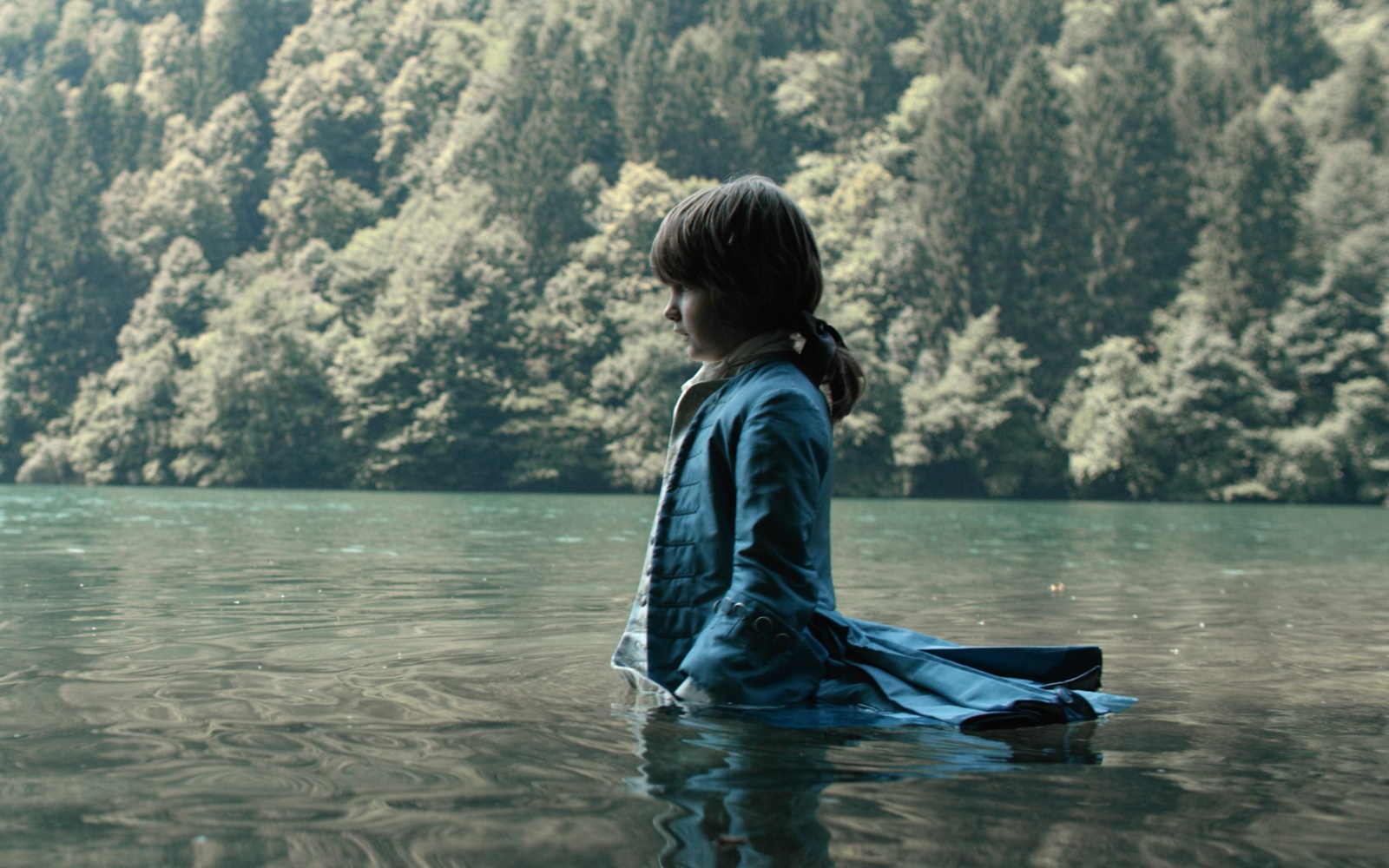At one point in The Book of Vision, a young woman spins around in ecstasy, arms spread wide like a whirling dervish, before falling to the grass. The D.P. has the camera eagerly follow her at waist height. It’s shot Steadicam and the lens is wide-angle. The cinematographer is Jörg Widmer, who recently shot A Hidden Life and has worked behind the camera in varying capacities in each of the director Terrence Malick’s films since The New World. At a glance, this spinning girl could have been plucked from any one of those movies. A closer look reveals it’s not a girl exactly but a subtly digitized image of one, as are the clouds and the trees.
The Book of Vision is the debut feature of Carlo Hintermann, a director whose work has never strayed too far from the reclusive Texan’s sphere. At the age of 26, back at the turn of the millennium, he made a swooning documentary called Rosy-Fingered Dawn: A Film on Terrence Malick. A decade later he would work as a second unit director for the Italian shoot of The Tree of Life. Now Malick turns from idol to mentor, taking the role of executive producer on The Book of Vision, a high concept film drenched in his influence and philosophy if not the discipline of his storytelling.
It is Hintermann’s narrative debut and in these circumstances it can be lucky to have such friends. Alongside Widmer comes production designer David Crank, who has worked with Malick on many occasions as well as with Steven Spielberg (Lincoln) and Paul Thomas Anderson (There Will Be Blood, The Master, Inherent Vice). Hanan Townshend, another Malick collaborator, provides a massive score. Unsurprisingly, it looks and sounds amazing, all beautifully sunlit interiors, flowing gowns, and joyous sequences of the natural world. But what exactly is going on? Apparently to show how the relationship between doctors and patients has changed since the birth of rationalism (the shift to scientific medicine being based on the mechanics of the body rather than feelings), Hintermann has devised a film with two parallel timelines: one present-day and one 200 years in the past, just on the cusp of that moment of enlightenment. There is also a magical tree that is about to be chopped down to make way for a metaphor-heavy road. It is a lot.
The contemporary timeline concerns a doctor named Eva (Lotte Verbeek)––note the character’s name––who has left the medical profession to study medical history. She is somewhat dubious of our current unchecked fate in rationalism, having been told by her doctor (Charles Dance, grumpy and brooding as ever) that her pregnancy will kill her. She becomes obsessed with a book by a Prussian physician called Johan Anmuth who treated patients based on their personal history–or something like that. Eva’s thoughts and dreams about the book take us to the second timeline where we follow another woman (also Verbeek) who is having an affair with Anmuth (also Dance). As Eva’s obsession grows the worlds and characters begin to overlap. Hintermann’s message, like that of his mentor, seems openly about faith. That his debut should posit something as Malickian as naturalism prevailing over cold modernity comes as no shock, although I fear it could easily be misread as pro-life. However, I strongly doubt this is intended.
The photorealistic film enjoyed a brief moment in the sun in the early years of the 21st century. Around the time Hintermann was working on his Malick documentary, Hironobu Sakaguchi released Final Fantasy: The Spirits Within, the first photorealistic computer-animated feature film. It was a commercial disaster just like almost every film of its kind since (The Polar Express still somehow survives on holiday TV screens, but it is the exception). The technology has always felt more at home with video games; a place where the uncanny valley is perhaps more easily forgiven. Hintermann uses some version of this tool in an admirably subtle and sophisticated manner but it remains a barrier. We are told the film is about rebirth and love. I felt nothing.
The Book of Vision premiered at the Venice Film Festival.

